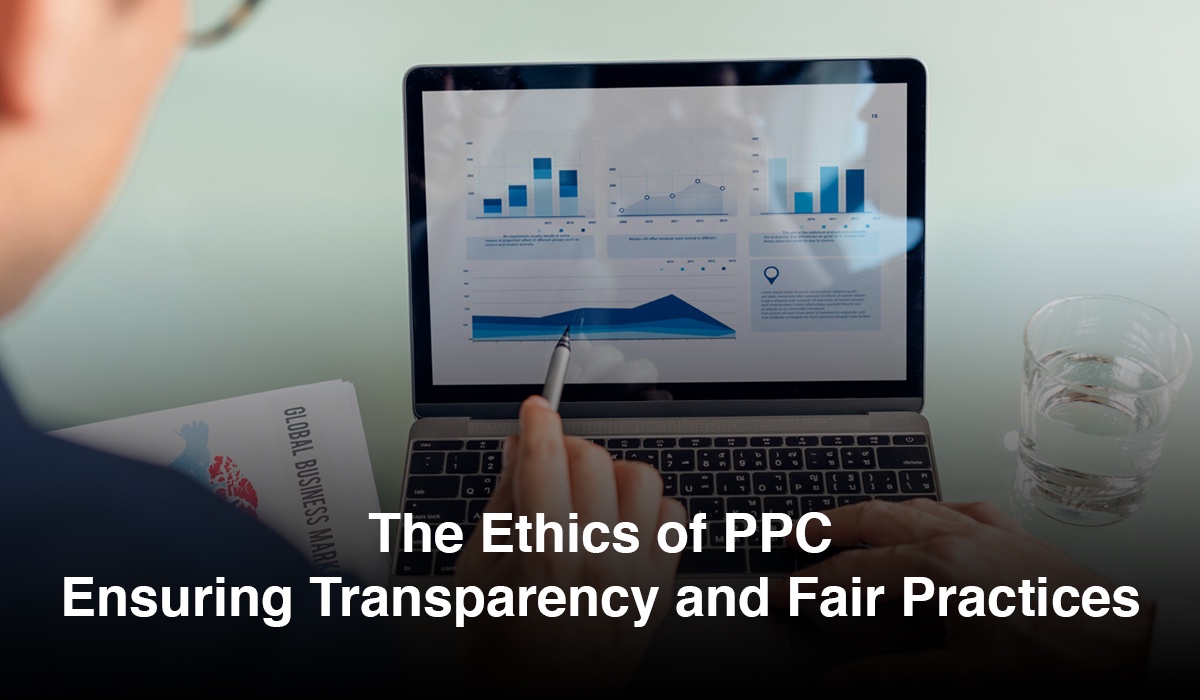In the fast-paced world of digital marketing, Pay-Per-Click (PPC) advertising has emerged as a powerful tool for businesses to reach their target audiences. However, with great power comes great responsibility. The ethical considerations surrounding PPC campaigns have gained increasing prominence as marketers navigate the complex landscape of online advertising. In this blog post, we will explore the ethical dimensions of PPC, emphasizing the importance of transparency and fair practices.
The Rise of PPC and Ethical Dilemmas
Understanding PPC:
PPC is a digital advertising model where advertisers pay a fee each time their ad is clicked. It's a cost-effective way to drive traffic to a website, increase brand visibility, and generate leads. Popular platforms like Google Ads and social media channels offer robust PPC solutions, making it an integral part of modern marketing strategies.
Ethical Dilemmas in PPC:
As businesses strive to maximize their ROI through PPC, ethical concerns arise. Some common ethical dilemmas include click fraud, deceptive ad practices, and manipulating bidding systems. These issues underscore the need for a framework of ethical guidelines to ensure that PPC campaigns prioritize fairness, transparency, and user trust, opined PPC ads experts in Bangalore.
Transparency in PPC: A Pillar of Ethical Advertising
1. Clear Communication:
Transparency begins with clear communication. Advertisers must provide accurate and comprehensive information about their products or services. Deceptive advertising, such as misleading claims or false promises, erodes trust and harms the reputation of both the advertiser and the platform.
2. Disclosure of Sponsored Content:
Ethical PPC campaigns clearly distinguish between organic and sponsored content. Users have the right to know when they are interacting with paid advertisements. Proper labeling ensures that consumers can make informed decisions and fosters a sense of honesty in the digital advertising landscape.
3. Transparent Pricing Models:
Advertisers should adopt transparent pricing models in PPC campaigns. Hidden fees or unclear billing practices can lead to frustration and distrust among clients. A straightforward and transparent pricing structure builds confidence and establishes a foundation for a long-term relationship.
Fair Practices in PPC: Balancing Business Goals and User Experience
1. Responsible Targeting:
PPC allows for highly targeted advertising, but this power should be wielded responsibly. Advertisers must avoid discriminatory practices and ensure that their targeting criteria adhere to principles of inclusivity and fairness.
2. Preventing Click Fraud:
Click fraud remains a significant ethical concern in PPC. Advertisers and platforms must employ robust measures to detect and prevent fraudulent clicks, which can artificially inflate advertising costs and undermine the integrity of the campaign.
3. Bid Rigging and Auction Manipulation:
Ethical PPC campaigns avoid bid rigging and auction manipulation. Advertisers should compete on the merits of their offerings, and platforms must ensure a level playing field for all participants in the bidding process.
The Role of Platforms in Ensuring Ethical PPC Practices
1. Algorithmic Transparency:
PPC platforms often rely on complex algorithms to determine ad placements and rankings. While these algorithms are proprietary, there is a growing demand for greater transparency. Platforms should provide advertisers with insights into how their algorithms operate to ensure fairness and prevent manipulation.
2. Robust Fraud Prevention Measures:
PPC platforms must invest in robust fraud prevention measures. Implementing advanced technologies, such as machine learning, can help identify and mitigate click fraud, ensuring that advertisers get value for their investment.
3. Educating Advertisers:
Platforms should actively educate advertisers about ethical PPC practices. Providing resources, guidelines, and training can empower advertisers to create campaigns that align with ethical standards, fostering a culture of responsibility in the digital advertising ecosystem.
Case Studies: Ethical PPC in Action
1. Patagonia's Transparency:
Outdoor clothing brand Patagonia has been a pioneer in ethical advertising. Their PPC campaigns prioritize transparency, clearly communicating their commitment to sustainability and responsible business practices. This approach has resonated with environmentally conscious consumers, establishing Patagonia as a trusted brand.
2. Google's Efforts Against Click Fraud:
Google Ads, one of the largest PPC platforms, has implemented sophisticated measures to combat click fraud. Through machine learning algorithms and continuous monitoring, Google aims to provide a fair and secure advertising environment for businesses of all sizes.
Challenges and Future Considerations
1. Emerging Technologies:
As technology evolves, new challenges and ethical considerations may arise. Adapting ethical guidelines to emerging technologies, such as artificial intelligence and augmented reality, will be crucial to maintaining ethical standards in PPC.
2. Global Perspectives:
Ethical standards can vary across cultures and regions. Advertisers must be sensitive to diverse perspectives and ensure that their campaigns respect cultural norms and values.
Conclusion
In the dynamic world of digital advertising, the ethical dimension of PPC cannot be overlooked. Transparency and fair practices are not only ethical imperatives but also essential for building trust with consumers and sustaining long-term success.
By embracing clear communication, transparent pricing models, responsible targeting, and robust fraud prevention measures, advertisers and platforms can contribute to an ethical PPC landscape. Case studies of companies like Patagonia and Google highlight the positive impact of ethical advertising on brand reputation and customer trust.
As the digital advertising landscape continues to evolve, the ethical considerations surrounding PPC will evolve as well. Advertisers, platforms, and industry stakeholders must work collaboratively to set and uphold ethical standards, ensuring that PPC remains a powerful and responsible tool for businesses to connect with their audiences in the digital age.


No comments yet